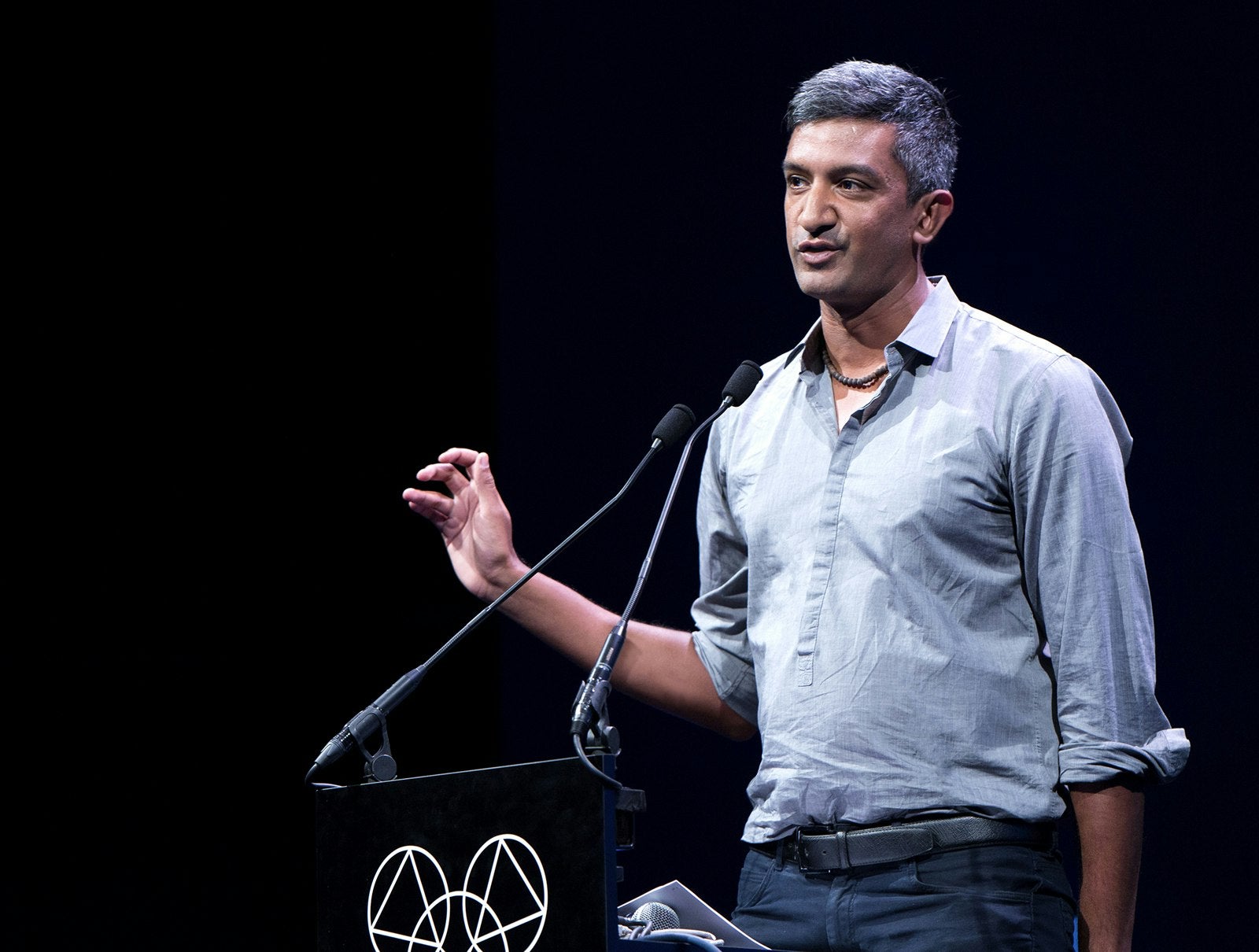UCLA professor of information studies discusses Amazon’s surveillance of its customers and employees with NPR.
Ramesh Srinivasan, UCLA professor of information studies, was recently interviewed WBUR’s “On Point,” and discussed Amazon’s nearly unlimited access to not only consumers’ online data via e-commerce but their actual daily movements by way of cameras on the company’s delivery vans. He compared the company’s uncontrolled reach into consumer’s lives to the fictional “Acme Company” that is ever-present in “Looney Tunes” animation.
“Everything is done through Acme,” said Srinivasan. “This is where Amazon is attempting to head it. It is able to sort of manipulate that false distinction between privacy and security that we have, where it sort of proffers convenience and consumer facing sort of devices and services. But in reality, what it is attempting to do is to be inside our homes, potentially analyzing our bodies, biometrically. All around our neighborhoods, literally combing the streets, as I mentioned earlier. Everywhere. I’m looking out my window right now, I see an Amazon truck, sure enough. I wonder if it’s looking at me.”
Srinivasan pointed out that Amazon’s camera surveillance of its drivers and tracking wristbands on fulfillment center workers speaks to the company’s treatment of its non-unionized workforce as possibly, “… cogs in their machine of just creating greater and greater power, whether through the speculated value of data or on actual profits…
“I think more generally, when we want to talk about Amazon’s relationship with human beings, specifically its laborers, we can understand quite clearly that Amazon’s primary and pretty much seemingly sole objective is to extract as much as possible from these laborers.
And there’s some evidence also to consider that all of this data is being used to fuel the construction of robotic and automated systems that at some point will eventually replace these human beings and these workers themselves. So that poses great economic threats to a digital economy that, quite honestly, is not really supporting the working and middle classes, in my opinion.”
Professor Srinivasan noted that Amazon uses census data and has partnerships with the Department of Defense, the military industrial complex, with law enforcement. In addition, the company has a contract with the Department of Homeland Security, using its facial recognition technology with ICE raids, which misidentified people who are actually documented, as undocumented. He also discussed how Amazon’s Ring security system has given consumers, “…a level of surveillance and potential behavioral control and criminalization of myself and my neighbors that has never existed ever before.”
“The attempts here by Amazon are to basically be the mediating aspect of every aspect of our lives, every component of our lives,” said Professor Srinivasan. Our lives are the raw materials upon which Amazon as a corporation operates … Amazon operates on the Internet and its delivery vehicles use our roads. Both of those are things that we, the American taxpayers paid for. Yet we have such little understanding, let alone power, over Amazon’s corporate activities.
“It’s astonishing how it’s entered all of these different realms, a company that doesn’t pay any taxes, whose founder and CEO is the wealthiest person in the history of the world or close to it. Look at its attempts to basically take over every single market it can.
“My goal is to not be sort of a doomsayer, but to arm the public with the tools where we, at the minimum, have a right to understand what Amazon is doing with all of this data that it’s collecting about our lives … My point is we have given this private corporation so much power, and I don’t want us to blame ourselves. I want us to be armed with the tools so that we can check and balance the situation.”
Srinivasan is the author of “Beyond the Valley: How Innovators around the World are Overcoming Inequality and Creating the Technologies of Tomorrow,” published by MIT Press, and named by Forbes as a Top Ten Tech Book in 2019.
Professor Srinivasan is also a faculty member of UCLA’s Design Media Arts department and the founder and director of the UC Digital Cultures Lab. He has studied the relationships between new (Internet, social media, and AI) technologies and political, economic, and social life in more than 70 countries, and has worked with governments, businesses, activists, and civil society organizations to advise on technological futures. Srinivasan’s other books include “Whose Global Village? Rethinking How Technology Impacts Our World” (NYU Press), and “After the Internet” (with Adam Fish), published by Polity Press.
Srinivasan is a regular speaker for TED Talks, and has made routine media appearances on MSNBC, NPR, Al Jazeera, Democracy Now!, CBS, The Young Turks, AtlanticLive, and the Canadian Broadcasting Corporation, BC. He has contributed op-eds and had his research featured in international publications including the Los Angeles Times, The Guardian, Wired, The New York Times, Al Jazeera English, The Washington Post, FAZ (Germany), The Financial Times, CNN, Folda Sao Paolo (Brazil), BBC News, the Christian Science Monitor, National Geographic, Quartz, and The Economist.
To hear the full interview on WBUR’s “On Point” (NPR Boston), visit this link.
